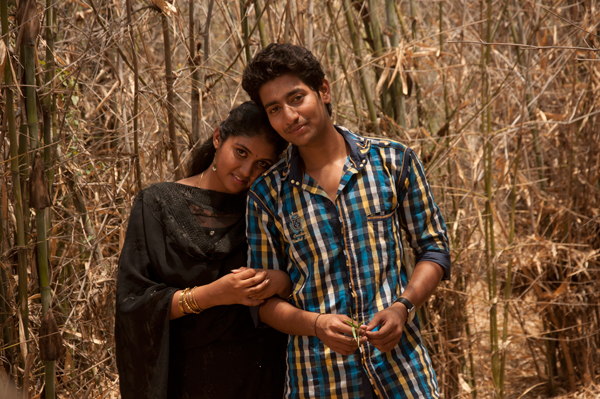Sairat: The return Of The Self-Willed, Headstrong Lovers
By Rutuja Deshmukh Wakankar
18 May, 2016
Countercurrents.org

Love Stories are a great commentary on the contemporary gender issues, socio-political scenario of a land and religion.
I went to watch Sairat, the Marathi film, directed by Nagraj Popatrao Manjule, with lot of expectation and anticipation. Sairat being the second film from the much acclaimed director of Fandry, a tale; set in rural Maharashtra, of a lower caste school boy, his infatuation towards a high caste girl and his negotiations with caste-ridden society. My anticipation resulted into contemplation and a sense of fulfillment of a kind. Sairat, not only a matured story, ripened by grief and resistance, but also a sensitive and yet a strong jolt to the caste atrocities prevalent in Hindu society.
Marriage between male of lower Varna or caste and a female of higher Varna or caste is called Pratiloma marriage. The Pratiloma marriage was strongly condemned and discouraged by all the earlier Hindu lawgivers. Though the law gives no such sanction of imposing within caste only marriages, our newspapers and News Channels are full of Khap Panchayat dictates and honor killings of young people across the country.
After having grown up on a generation of films beginning from Dilwale Dulhania Le Jayenge (1996), which vehemently preached about the righteous lovers who only married after parental consent and waited for it till eternity, never ever questioning that their parents might just not agree to their choice. Moreover what about one’s personal commitment towrsds one’s love and his/her partner of choice!? Where young women are treated like the property of their fathers’ that a male lover should lawfully ask for and patiently wait for the girls father to consent.
These films, quintessentially after the economic liberalization in India, sought no intervention between the different economic classes. Suddenly the lead male and female characters belonged to the same economic class and Hindu hegemonic upper caste where the lovers made no negotiations with existing patriarchy or other societal norms. As if the free markets have left no scope for a lower class/caste lover on the celluloid. Amidst these boring and mundane lovers, Sairat brings us these strong-willed , passionate yet responsible lovers who transcend the boundaries of caste and class, struggle with patriarchy and challenge the rural politics and hegemony. It is the love story of a high caste Maratha girl Archi and a lower caste koli (fisherman caste) Parshya.
The lead female character Archi Patil(Rinku Rajguru) who belongs to the is an independent and headstrong, bullet and a tractor riding girl who has no qualms saying ‘I love you’ first to her lover. When they are discovered in the backseat of a car, cozying up with each other and her lover Parshya (Akash Thosar) is beaten up by the goons of her politician father; she rises up to the occasion and gives the statements in the local police station thereby protecting Parshya, his friends and family. She believes in her love and her choice and stands by it firmly. She outdoes the hurdles of class differences and fights herself to set up an independent life with her partner without the materialistic luxuries she is used to at her father’s house.
And here is a male protagonist who doesn’t mind sitting as pillion rider with their toddler, while his wife rides the two-wheeler. Parshya too breaks many norms and popular gendered notions by cleaning the little room in the slum of Hyderabad where they set their first house. He cooks and cleans to surprise us with his maturity and responsibility towards love and respect for his partner.
Sairat has already crossed 50 crores at the box office and received a standing ovation at 66th Berlin International Film Festival which in itself is the cause of fervor in a highly Brahminical Marathi film industry.
The ending of the film does leave one in a melancholic contemplative mood but it does conquer its viewers with simplistic love. No wonder it has hurt the ego of the politically dominant Maratha caste in Maharashtra.
Rutuja Deshmukh Wakankar is a former journalist with Indian Express. She has taught Cinema Studies at Allahabad University. She is an avid photographer and held exhibitions of her work in Pune. She is also a qualified Advanced Open Water SCUBA Diver.

